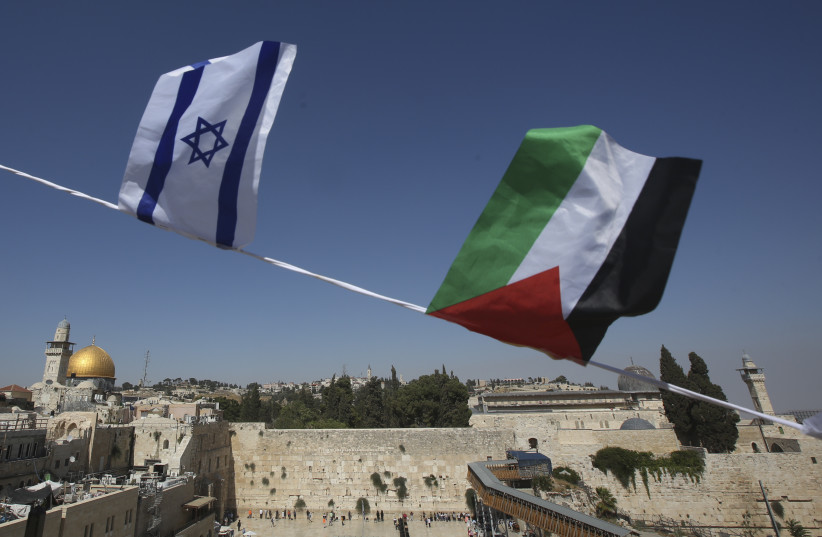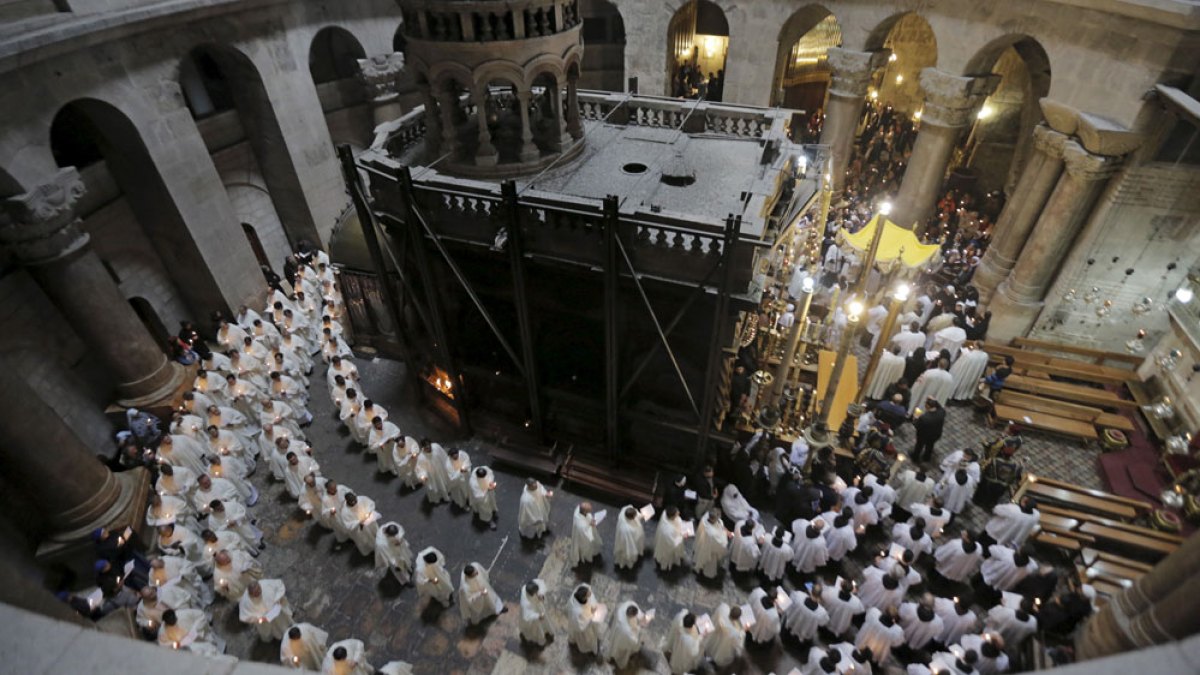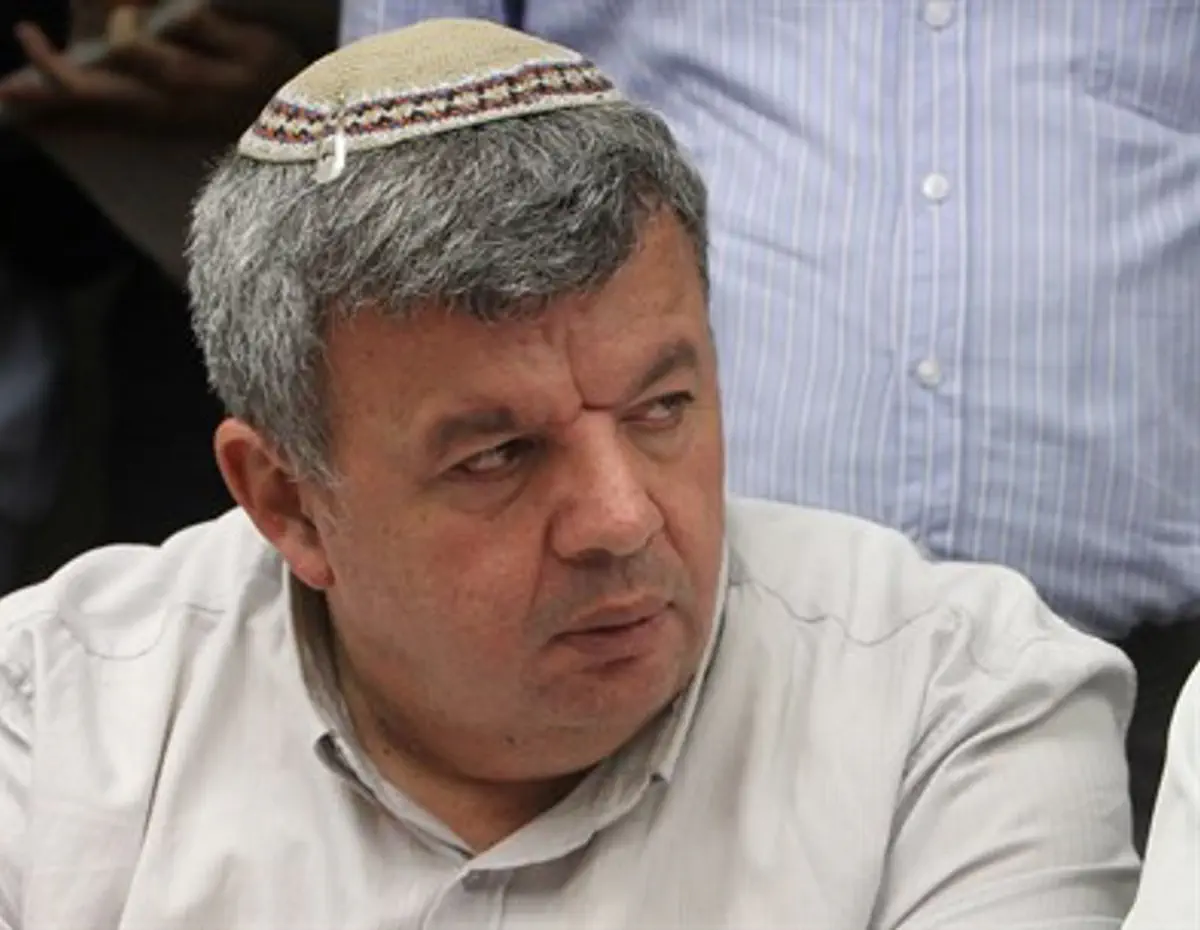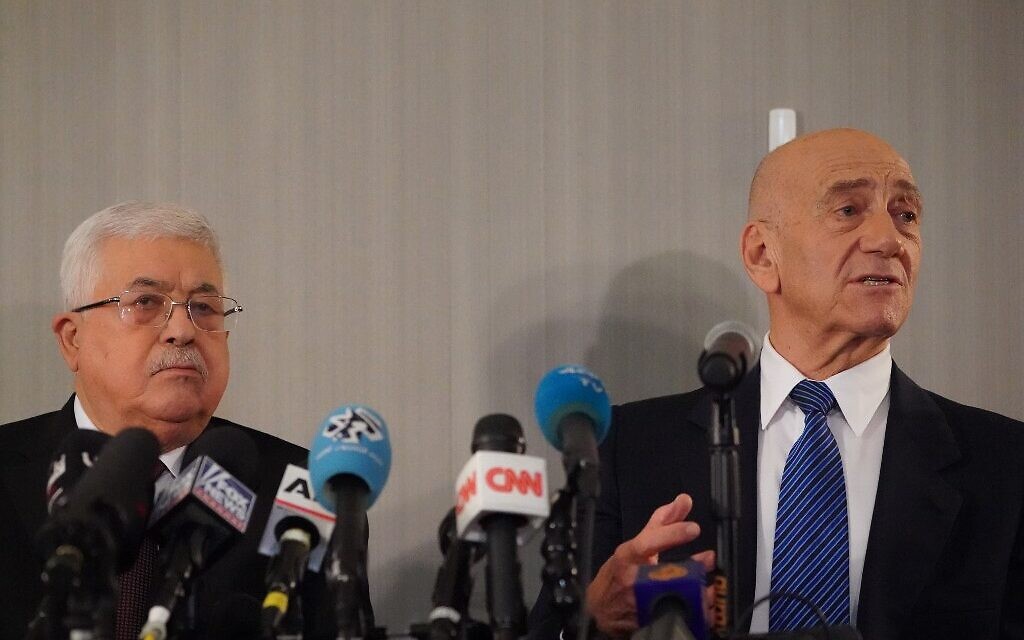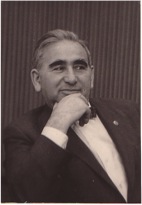Palestinian factions have condemned the participation of Palestinian figures in a meeting organized by The Israeli Peace Parliament.

www.jpost.com
"Palestinian factions have condemned the participation of Palestinian figures in a meeting organized by The Israeli Peace Parliament, a public unaffiliated forum whose members are former representatives of a variety of political parties and movements, including former ministers and members of the Knesset.
Friday’s meeting in Tel Aviv was held under the banner “Yes to Peace,” “No to Annexation” and “Two States for Two People.”
This meeting is a smart move for the parties involved as it is a reality that Netanyahu has said that annexation is something that can be achieved with or without a peace agreement. However, without the recent peace agreement issued by the Trump administration standing behind his vision to annex the occupied territories, this could be like the straw that broke the camels back within the region. This is all the more reason to believe that the peace plan proposed by the Trump administration was a plan to annex this region rather than a genuine plan for peace. It was a superficial way of dealing with the conflict that could result because of this. It was more of a bribe to accept the annexation.
As a result, who participated in this peace meeting when it is clear that Netanyahu and the Trump administration are fixed on the idea of annexation? Kushner has even said that returning the occupied territory is not an option. In fact, the peace plan justifies the annexation by making a comparison between other historical examples of land conquest gained in conflict. It says that land gained in conquest is not often returned. So the parties involved in a meeting grounded in the agreement to discuss, "no to annexation," are not likely to include the same people involved in, and supporting, the recent peace plan issued by the Trump administration.
It is hard to get information on some of the participating Palestinian figures. However, former Palestinian Authority economy minister Bassem Khoury appears to be a Palestinian Christian residing in Jerusalem who has openly opposed Israeli restrictions on Easter activities.
After annual difficulty accessing religious sites, Palestinians vow to pursue ‘other means’ if restrictions continue.

www.aljazeera.com
Former PA health minister Sameeh al-Abed is credited with signing an agreement to help Palestinian youth in 2005.
The Ministry of Planning and the U.S. Agency for International Development (USAID) signed Wednesday a memorandum of understanding for a program to increase the learning and earning opportunities of the Palestinian youth. The USAID Deputy Mission Director David Harden, the Deputy Minister of Planning Dr. Sameeh Al Abed, and Dr. Cairo Arafat attended the signing event.
Former PA local governance minister Hussein al-A’raj has also had an interest in the youth. In particular, he has commented on the possibility of peace between Israeli youth and Palestinian youth.
Hussein Abdallah al-Araj, Acting Mayor of Nablus and the Minister for Local Government noted that a group of ten Palestinian youths and ten others from Israel were meeting in Venice, but could not meet at home. He said, “I believe peace can be implemented only if we build confidence between our youth and the youth of our neighbor, Israeli youth.” Mr.Al-Araj said that Nablus had been closed for three years, and noted that a wall has been under construction nearby. “Walls don’t build peace, we learned that in Berlin ...face to face contact do,” he said.
And a real star at this meeting for anyone who has previously complained about the Palestinian Martyr's Fund or suggested that this was an organization that existed under the same umbrella as radical terrorist groups, is former PA prisoners affairs minister Ashraf al-Ajrami.
Ashraf al-Ajrami is a former prisoner himself who served 12 years in an Israeli prison and this isn't the first time that he has met with Israelis. As a supporter of the Geneva Initiative, which was an initiative to end the Israeli-Palestinian conflict from 2003, he was invited to be a guest of honor by members of the Knesset that had also supported the Geneva initiative. This event took place in 2013.
MKs were up in arms Sunday over revelations that a PLO terrorist and former minister in the Palestinian Authority
was due to be a guest of honor in Israel's Knesset Monday. Ashraf al-Ajrami is an active member of the Geneva Initiative, who spent 12 years in Israeli prisons for terror activities. He is set to come to the Knesset Monday as a guest of MKs active in the Geneva Initiative, including Labor head Shelly Yachimovich, Hatnu'a head Tzipi Livni, top Meretz MK Zehava Galon, and MKs from several parties.
In a special request to Knesset speaker Yuli Edelstein, Bayit Yehudi MK Zvulun Kalfa requested that al-Ajrami be barred from the Knesset building.
In a 2009 interview on PA television, al-Ajrami praised arch-terrorist Yasser Arafat as the “master of the resistance to Israel,” and went on to praise several terror attacks against Israel, in which 17 Israelis were murdered.
“It is unthinkable that someone who praises murderers should visit the Knesset as an honored guest,” Kalfa wrote in his letter to Edelstein. “Please do not let al-Ajrami into Israel's lawmaking body,” he added.
In a separate letter, the Legal Forum for the Land of Israel also asked Edelstein to keep al-Ajrami out of the Knesset. “Ashraf al-Ajrami, formerly the Minister for Prisoners in the PA, and who himself served 12 years in Israeli prisons for terror activities, said at a forum at Bar Ilan University that violence against IDF soldiers was legitimate.” In addition, the letter to Edelstein added, al-Ajrami praised Lebanese terrorist Samir Quntar for his murder of the Haran family in Nahariya, calling Quntar “a hero.” Among those killed in that terror attack was a four year old girl.
A top PLO terrorist and former PA minister is set to visit the Knesset Monday - and some MKs are understandably upset

www.israelnationalnews.com
While it is often reported that groups adhering to the same beliefs all exist under the same banner, the Israeli left doesn't appear to see things the same way. This is even reflected in the peace plan. The plan indicated that many people like al-Ajrami would have been released from Israeli prisons if they had accepted the plan.
In most cases, when things are reported collectively, they cannot get away with the same biases that stem from personal opinions that can often be seen in individual interactions. This would be an example of this because when you objectively look at the context of this situation in Palestine, there are many people who appear to feel stuck and are responding to a perceived source of injustice with some degree of impatience.
Recognition of these acts resulting from a perceived sense of injustice contributes to the ability to differentiate between the people who were offered a peace plan and more radical groups.
And who are these Israelis that met with these former Palestinian leaders, which included people like al-Ajrami. Well, they were all members of the Labor party. Ehud Olmert who appeared in a joint press conference along with Abbas is also a member of the labor party and they have recently announced that they would restart peace talks where they had left off. So the labor party appears to have had much more success in working with the Palestinians towards a peace agreement.
Palestinian Authority President Mahmoud Abbas met with former premier Ehud Olmert Tuesday and committed to restarting peace talks where they left off with the former Israeli leader over a decade ago, while rejecting a current US-backed peace effort.
Netanyahu slams meeting as 'low point in Israeli history'; PA leader says he's willing to pick up negotiations from where he left off with former Israeli PM in 2008

www.timesofisrael.com
Prior to this, Olmert had said that he believed he was very close to a peace agreement with the Palestinians. Abbas agrees with this according to an article from 2015.
The Palestinians seek all of the West Bank as part of an independent state, with east Jerusalem as their capital. Israel captured both areas in the 1967 Mideast war.
Olmert said he had offered a near-total withdrawal from the West Bank — proposing that Israel retain 6.3 percent of the territory in order to keep control of major Jewish settlements. He said he offered to compensate the Palestinians with Israeli land equivalent to 5.8 percent of the West Bank, along with a link to the Gaza Strip — another territory meant to be part of Palestine.
He also said he offered to withdraw from Arab neighborhoods of east Jerusalem and place the Old City — home to Jerusalem’s most sensitive holy sites — under international control. He described the offer to give up Israeli control of the Old City as the hardest day of his life.
Abbas said he supported the idea of territorial swaps, but that Olmert pressed him into agreeing to the plan without allowing him to study the proposed map.
“He showed me a map. He didn’t give me a map,” Abbas said. “He told me, ‘This is the map’ and took it away. I respected his point of view, but how can I sign on something that I didn’t receive?”
Olmert confirmed that he pressed Abbas to initial the offer that day.
PA president says he declined proposal -- which included near-total withdrawal from West Bank and relinquishing Israeli control of Jerusalem's Old City -- because he wasn't allowed to study map

www.timesofisrael.com
And the factions that are said to oppose this meeting between former Israeli and Palestinian leaders include Hamas. The Palestinian Islamic Jihad, which is another extremist group that is partnered with Hamas under the Alliance of Palestinian Forces.
The PLO’s Popular Front for the Liberation of Palestine, which is actually a Marxist-Leninist organization. You could say they are something like the Palestinian version of the Weather Underground and they specifically object to this meeting because they believe that Abbas is sponsoring it directly.
Friday’s meeting between Israelis and Palestinians was held under the direct sponsorship of the PA leadership and Mahmoud Abbas, the PFLP claimed.
And, Al-Ahrar (“The Free”), a group of dissident Fatah members in the Gaza Strip. So the snippet does indicate that there are factions that do not approve of this meeting rather than suggesting that the Palestinians are being directly betrayed by their own people. However, when you look further into the details of the politics behind this whole situation, this article reveals many of the nuances of the politics in this area.
The situation between Palestine and Israel is not simply a disagreement between an Islamic Palestine and a Jewish Israel. There are many political layers involved. In regard to this specific example, radical political groups within Palestine appear to be the ones who are opposing this peace meeting that is being held.
Finally, this article does not in any way, shape, or form suggest that people are growing tired of the Palestinian cause and are becoming willing to give in or give up on it.

